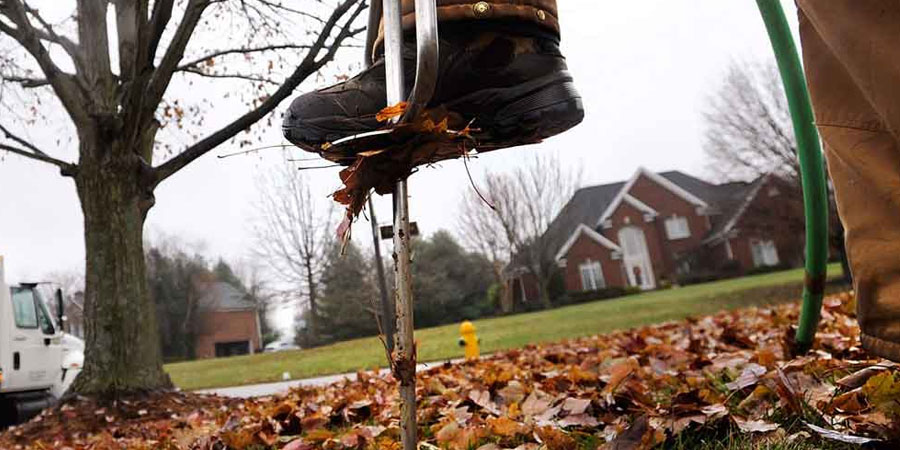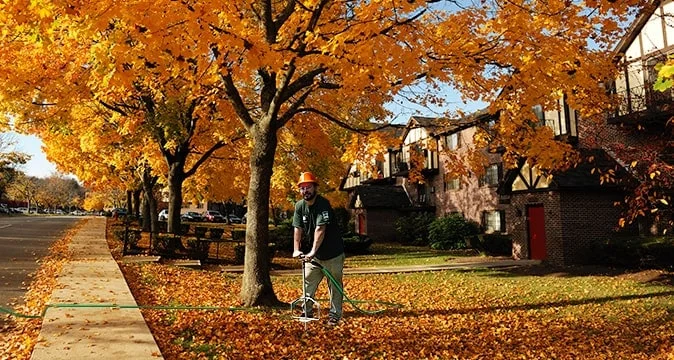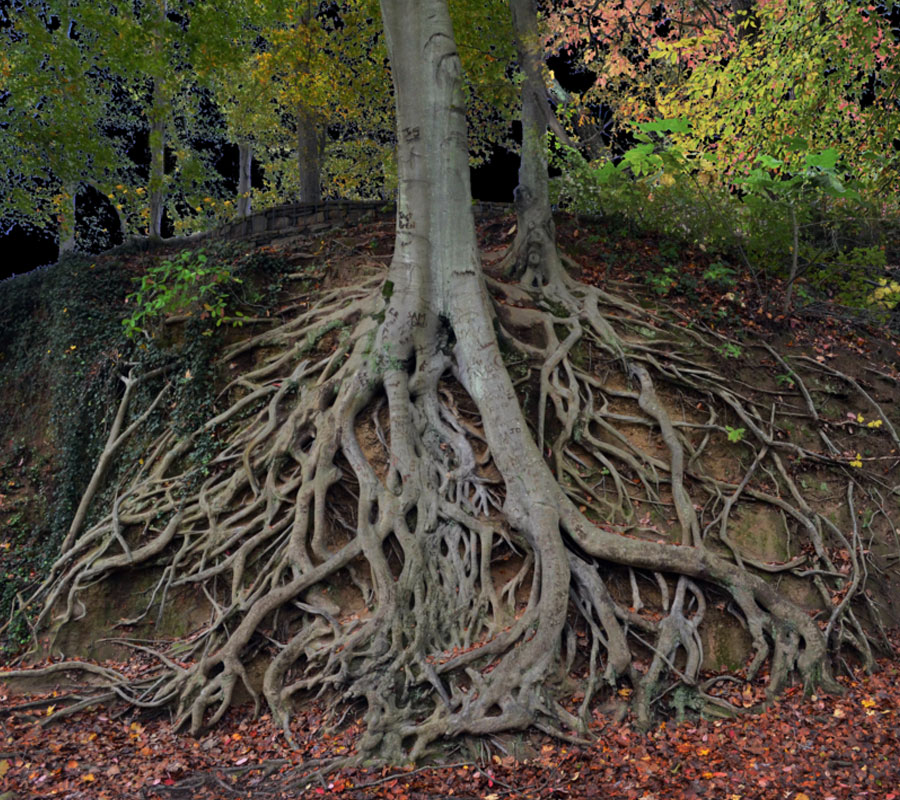Tree and Deep Root Fertilization in Toronto, GTA
Trust Tree Doctors for all your tree care needs – we’re committed to exceeding your expectations!
Boost Your Tree’s Health:
Deep root fertilization is the key to restoring your trees, enhancing soil vitality, and fostering sustainable growth. Book by November 14 to get 40% off! This limited-time offer applies to both new and returning clients and is available for confirmed fall bookings only.

What Is Tree Fertilizing?
Every tree needs food to grow and be healthy just like any other living thing. Trees take nutrients and minerals from the soil. Deep Root Fertilizing, also called Root Feeding, is injecting carefully selected minerals and nutrients into the soil around your trees so that they can be easily absorbed by the roots of your tree. This method ensures that nutrients reach the active root zone, where they can be absorbed efficiently. As a result, trees become more resistant to disease, pests, and environmental stress.
Does My Tree Need Fertilizer?
Trees growing in their natural habitat should have access to all of the minerals they need to survive and grow. Anything you can do to mimic that habitat can reduce the need for fertilizer. This may include letting leaves remain on the ground in the fall instead of raking them up, and leaving branches for natural decomposition. Chances are that especially in city conditions, the need for fertilizer will not be entirely eliminated.


Why Autumn Fertilization is Essential for Your Trees
Autumn is the ideal time to fertilize your trees as they prepare for winter dormancy. Fertilizing now helps replenish nutrients lost during summer, strengthening the roots and boosting disease resistance. This ensures your trees stay healthy through winter and thrive come spring. Don’t wait — fertilize this fall for a strong, healthy future.
How Can Tree Doctors Help?
Helping Trees is Our Passion. While we provide a full range of tree services in Toronto, Tree Fertilization is what we love doing the most and where we really stand out from our competitors. Yes, Tree Doctors still does house calls. We employ trained and experienced certified arborists who will visit your site at no cost and provide a full assessment of your tree and soil condition to find out what is wrong with your trees and what we can do to help them grow healthy and beautiful.
We don’t believe in general “fix it all” fertilizer. With over 50 combined years of tree expertise, Tree Doctors collected a vast knowledge of soil conditions in Toronto and the GTA, which helped us to develop a special fertilizing composition that is proven to work the best for our trees. Tree Doctors- Arborists Who Care.


Advantages of Deep Root Treatments:
- Fertilizing can increase the growth rate of a tree (especially young trees)
- Fertilizing can improve the color of the foliage
- Fertilizing is often the first step in an effective Integrated Pest Management program: A healthy tree is better suited to fight off pests and other pathogens
- Young or newly planted trees benefit from fertilizer and root feeding as they are establishing their roots into the native soil
- Many mature trees suffer from simple deficiencies that can be corrected with deep root fertilizing
- Any storm, construction, or other damage that impacts the tree will cause considerable stress which can be mitigated by timely fertilization
- Fertilizing includes pH correction in the soil which is very important with the substantially alkaline soils of southern Ontario.
By injecting fertilizer and soil amendments directly into the ground under pressure, this service replenishes depleted nutrients while loosening compacted soil. The result is better water and oxygen flow to the root hairs—where true absorption and growth begin.
If you have any questions about Fertilizing and Soil injections Call us at (416) 201-8000
Frequently Asked Questions
When is deep root fertilization recommended for trees in Toronto?
Deep root fertilization in Toronto is typically recommended during the growing season when trees can actively absorb nutrients. It is often used to support stressed, newly planted, or mature trees in urban environments.
What is the purpose of deep root fertilization?
Deep root fertilization delivers nutrients directly into the root zone, bypassing compacted surface soil. This method supports root development, improves nutrient uptake, and promotes overall tree health.
How is tree fertilization different from lawn fertilization?
Tree fertilization targets deep root systems and soil conditions around the tree, while lawn fertilization focuses on surface grass growth. Deep root fertilization is specifically designed to meet the nutritional needs of trees.
Which trees benefit most from deep root fertilization?
Deep root fertilization is commonly used for mature trees, newly planted trees, and trees showing signs of stress such as poor growth, thinning canopy, or soil compaction.
Can fertilization improve tree health in urban Toronto conditions?
Yes. Urban soil conditions in Toronto are often compacted and nutrient-poor. Professional tree fertilization helps improve soil quality and supports healthier growth in residential and commercial landscapes.
This is why you should always ask to see your arborist`s Proof of Insurance Certificate and WSIB Clearance Certificate.